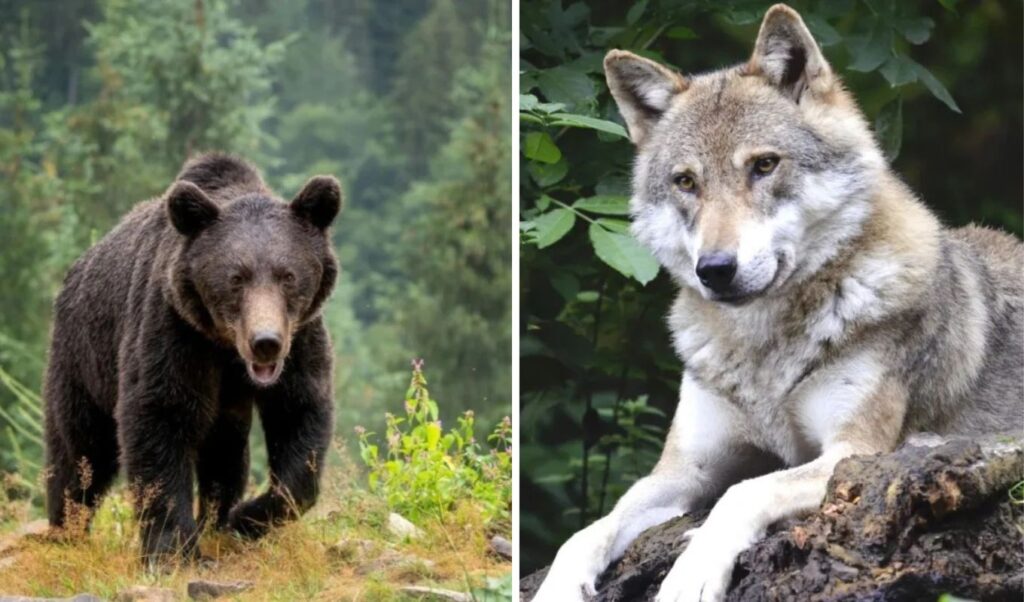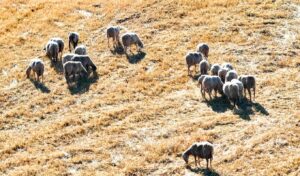Cases are multiplying recently where wild animals, such as wolves and bears, are descending into cities searching for food, with residents of these areas expressing their concerns.
Halkidiki: Growing concerns over wolf and bear attacks
The recent incident in Halkidiki, where a wolf attacked a five-year-old girl on a beach, is considered rare but highlights the consequences of ecosystem disruption. Similarly shocking was the bear attack in June in Drama, which resulted in a hiker losing his life. Similar incidents have been recorded in other areas of Greece, such as Lamia, Florina, and Serres during 2025.
As environmental organizations “ARCTURUS” and “Callisto” point out, animals are moving from forests and mountains into urban areas due to climate change, land use changes, relocation of livestock units, and uncontrolled garbage. But what should people do to protect themselves in case they come into contact with any of these animals?
What to do in case of wolf or bear attacks
Wolf attacks
Wolf attacks on humans are extremely rare, as these animals usually avoid human presence. However, if you find yourself in such a situation, the right reaction can save your life.
Dealing with wolves:
• Never run. Running activates their hunting instinct
• Maintain eye contact but avoid aggressive staring
• Make yourself appear larger – raise your arms high, open your jacket
• Speak loudly and steadily, but without shouting
• Back away slowly without turning your back
• Make noise – bang metal objects, clap loudly
• If they attack, protect your neck and head and fight with all your strength
Bear attacks
Bears are more dangerous than wolves due to their size and strength. Your reaction depends on the type of bear and the situation.
For brown bears (grizzly):
• If the bear hasn’t seen you, leave quietly
• If it has spotted you, avoid direct eye contact
• Speak calmly and make slow movements
• If it attacks defensively (protecting cubs), play dead – lie on your back, protect your neck, and stay motionless
For black bears:
• Never play dead
• Make noise and try to appear larger
• If it attacks, fight with all your strength
• Aim for the nose and eyes
General prevention tips
Preventive measures:
• Make noise when walking in forests, especially in areas with limited visibility
• Travel in groups when possible
• Keep food in secure containers and away from sleeping areas
• Carry bear spray if available
• Learn about local wildlife before visiting an area
Important: If you are injured, seek immediate medical attention. Wild animal attacks can cause serious infections in addition to immediate injuries. Proper preparation and knowledge can save lives in these rare but dangerous situations.




